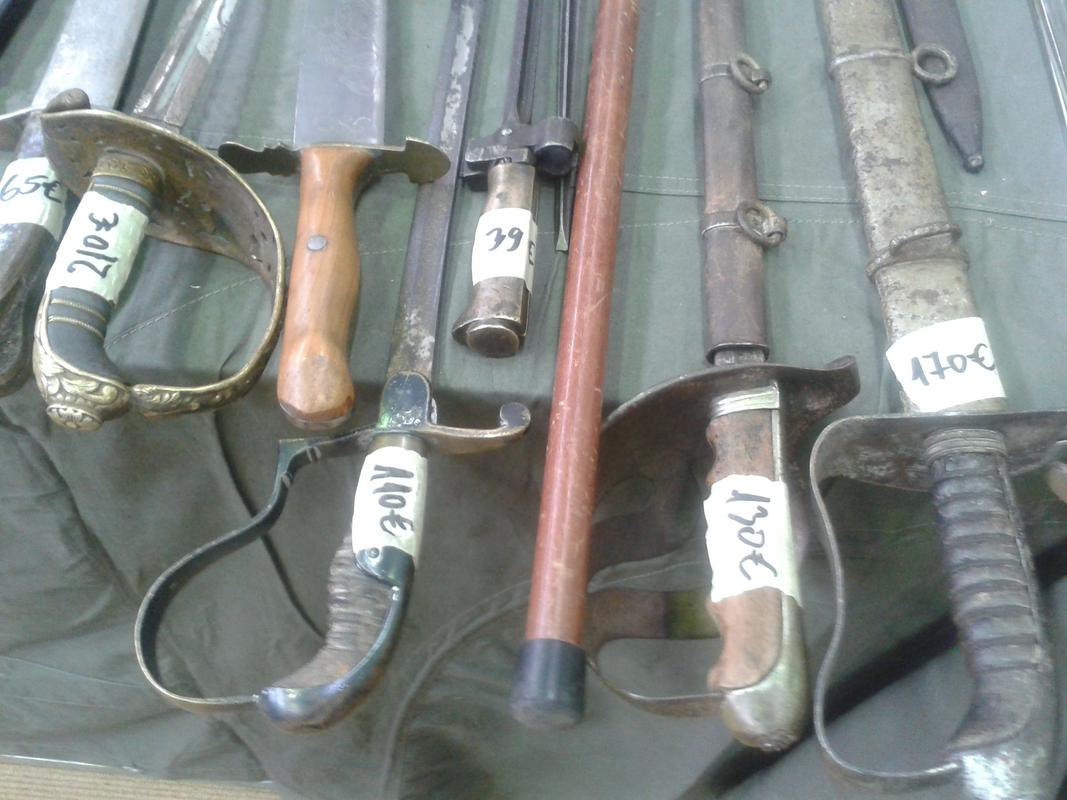
The next meeting of collectors of military remains will be on Sunday, April 6th 2014, from 09:00 until 15:00 at the HIT sports center in Šempeter pri Gorici. It will be organized by the Soča Front Association from Ljubljana.
130 collectors of military remains from 8 countries took part at the fair in Šempeter pri Gorici, which was attended by thousands of visitors. "A meeting with the past" is a fair which exhibits military remains and personal items of soldiers which bled and died for others in the past century.
Objects 100 years old attracted most of the attention – the year 2014 marks the 100th anniversary of the beginning of World War I, or as our western neigbours call it, the Great War.
"Tod sekla bridka bodo jekla ..."
Egon Valantič from the Soča Front Association, the main organizer of the "Meeting with the past", was very happy with the turnout: "Although we've been regularly meeting for 15 years now, every fair shows off something new and interesting. Collectors bring uniforms, old weapons, military decorations, postcards and personal items of soldiers. This year we had collectors from all corners of Slovenia, Italy, Austria, Germany, Croatia, Serbia, the Czech Republic and Poland. Every year we also tend to include extra events. This year we set up an exhibition of cold formation weapons and non-formation weapons entitled »Tod sekla bridka bodo jekla ..." (roughly translated: Here iron will cut bitterly ...)
The "Carniolian Janez" badges
As we're marking the 100th anniversary of the beginning of World War I, we tried to find 100-year-old items. A renowned collector – especially of military decorations and commemorative badges - David Tasič, showed us an interesting badge, the size of a finger nail: "This is an Austrian patriotic badge from 1914. It was badge woven on the hats of the "Carniolian Janez", our soldiers, which took part in World War I from Day 1. They are very rare and much treasured among collectors. This tiny, but meaningful badge, could reach prices up to several hundreds of Euros."
Censored army postcards
Postcards and letters written by soldiers on battlefields hold a special place among collectors. Among them one can find most valued mail that Austro-Hungarian soldiers used to get, with instructions on what to write to their loved ones back home.
Erik David Pipan, the vice-president of the Soča Front Association said "The mail in question had already printed words on the back side in nine different languages - all used in the Austro-Hungarian army. Printed was the sentence 'I am healthy and things are well'. Right next to that sentence was the instruction – also in nine languages – that they were not allowed to write or add anything else to their loved ones back home… On the front side there was enough space for the soldier to write in the address and sign the mail."
Impersonal messages indeed, sent by soldiers usually before the biggest battles. We asked Mr. Pipan whether this was one of the first cases of army censorship: "As a matter of fact, yes it was. Officers also used to check soldiers' letters. And if they ever allowed them to write a letter, they then erased all suspicious sentences, battlefield accounts, and descriptions of the unbearable conditions they were in."
Lies of soldiers’ deaths
"In the majority of cases those at home received messages that their sons or husbands died an honorable death, that they were shot in the head and that their death was sudden, without pain or suffering. It was a common practice. Sadly though this was far from the truth. Most young men died in agonizing pain and experienced inhuman suffering," Pipan revealed the truth.
The next meeting of collectors of military remains will be on Sunday, April 6th 2014, from 09:00 until 15:00 at the HIT sports center in Šempeter pri Gorici. It will be organized by the Soča Front Association from Ljubljana.

































































